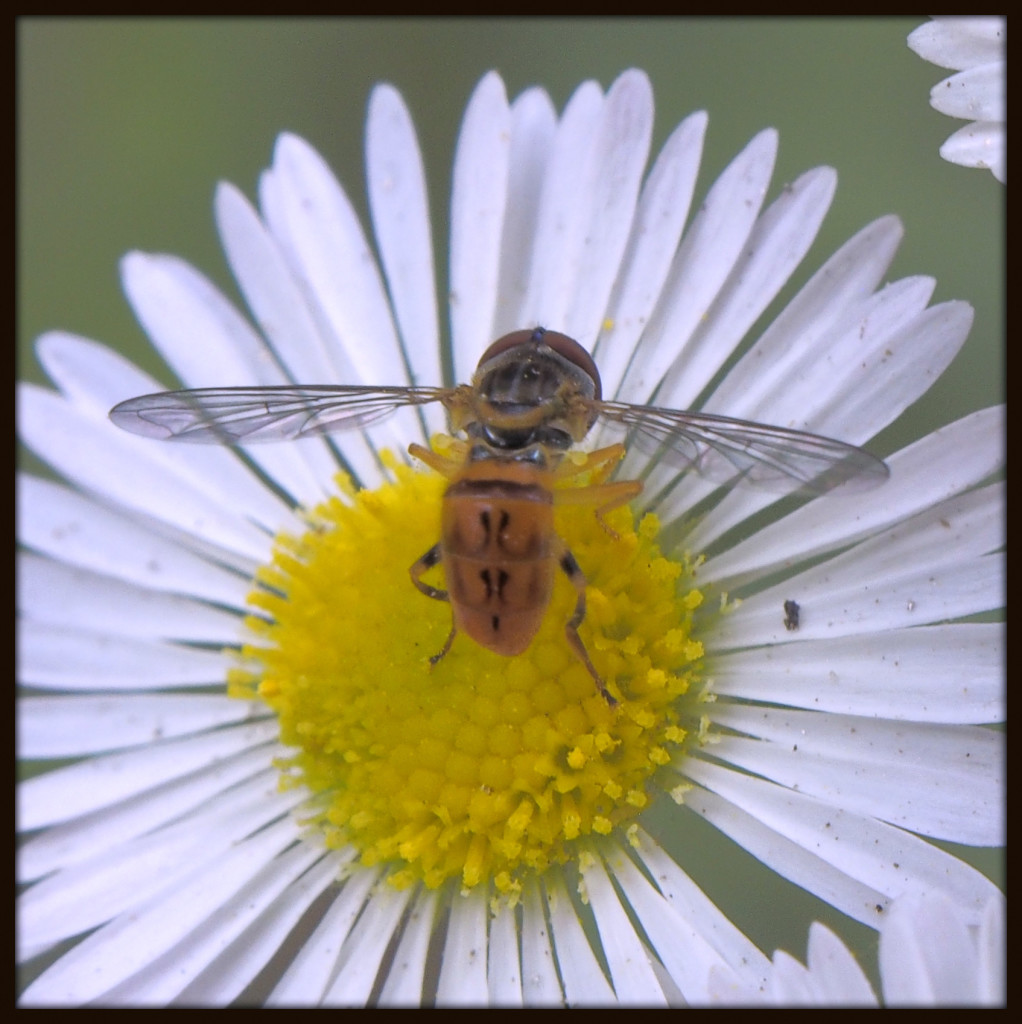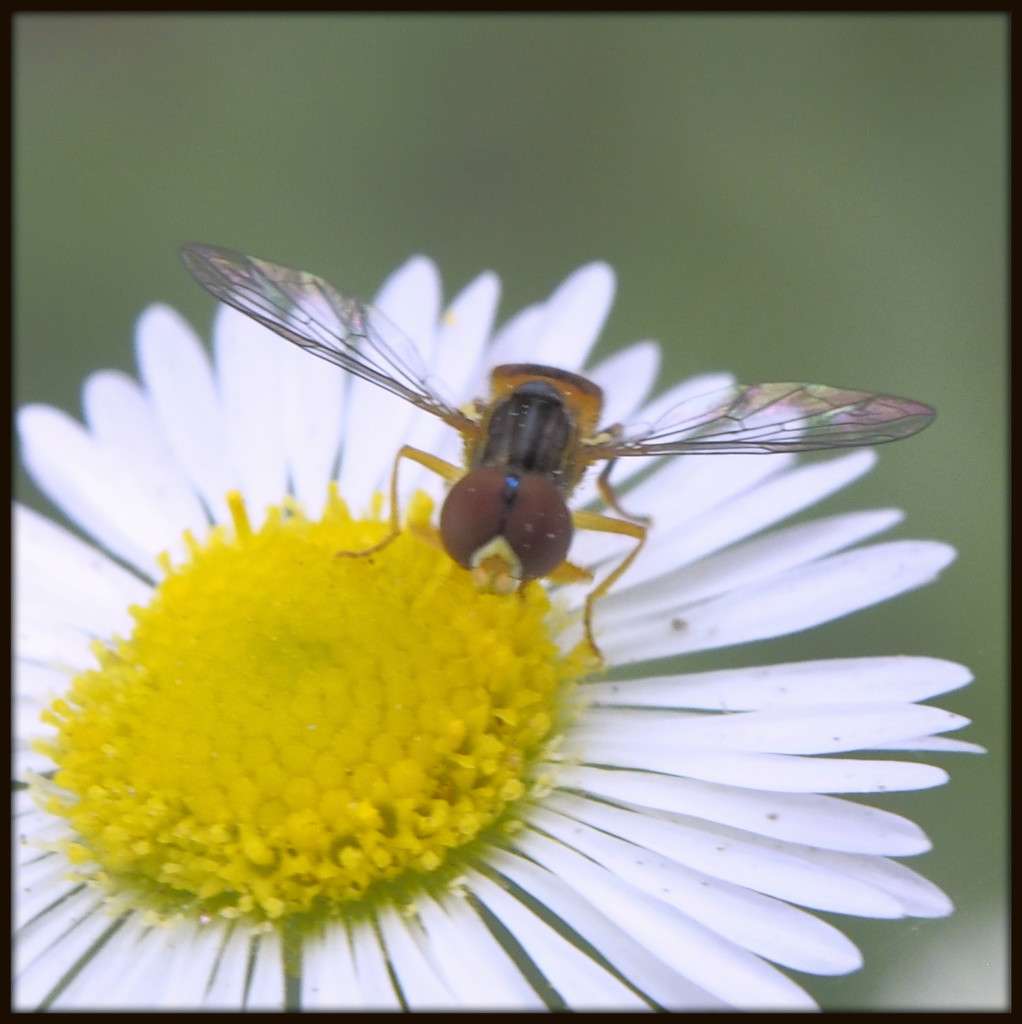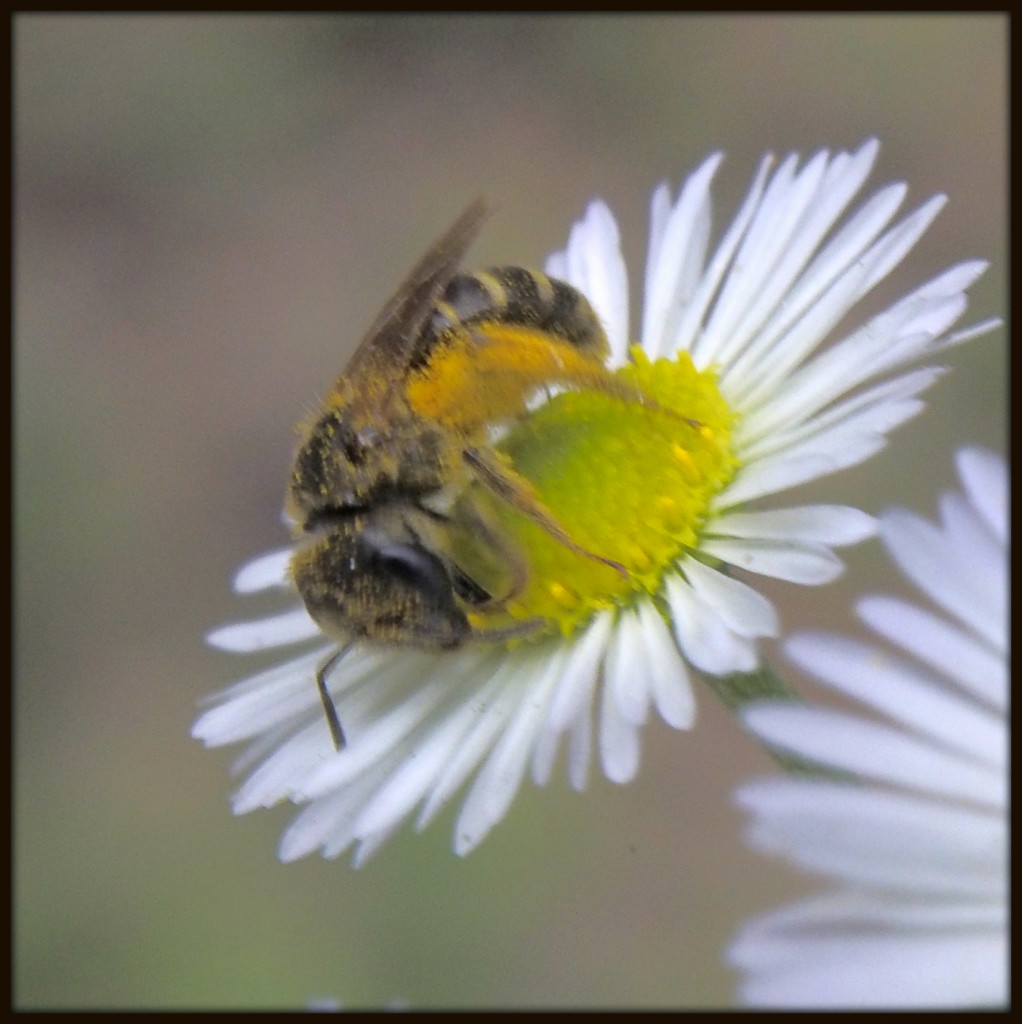On the late afternoon of July 4th, Valerie and I journeyed to the Newman Wetlands Center in Hampton, Georgia, southeast of Atlanta and not far from Jonesboro. Clayton County Water Authority constructed a wetlands there, including a series of connected pools, as a means of managing treated waste water. The result is truly magnificent. It is among the most beautiful, species-rich, and healthy islands of wildlife that I have encountered in the Georgia Piedmont. The site includes about a mile and a quarter of trails, mostly boardwalk through the wetlands, with a couple of enticing loops onto adjacent ridges. There is so much to see there this time of year, from dragonflies and sunfish to turtles of all kinds, that anyone planning to take photographs should allow at least two hours to explore it all. There is also an extensive visitor center with an adjacent pollinator garden. This post features some of the insects seen in the garden; a separate post later today will cover the wetland wildlife.
Quite a few flowers were in bloom there last Friday, including several butterfly bushes (not a native species, but very popular with pollinators nonetheless). Purple coneflower (Echinacea purpurea) was also still flowering; though I did not see any insects land on them, the blooms were lovely enough to merit a photograph in their own right.
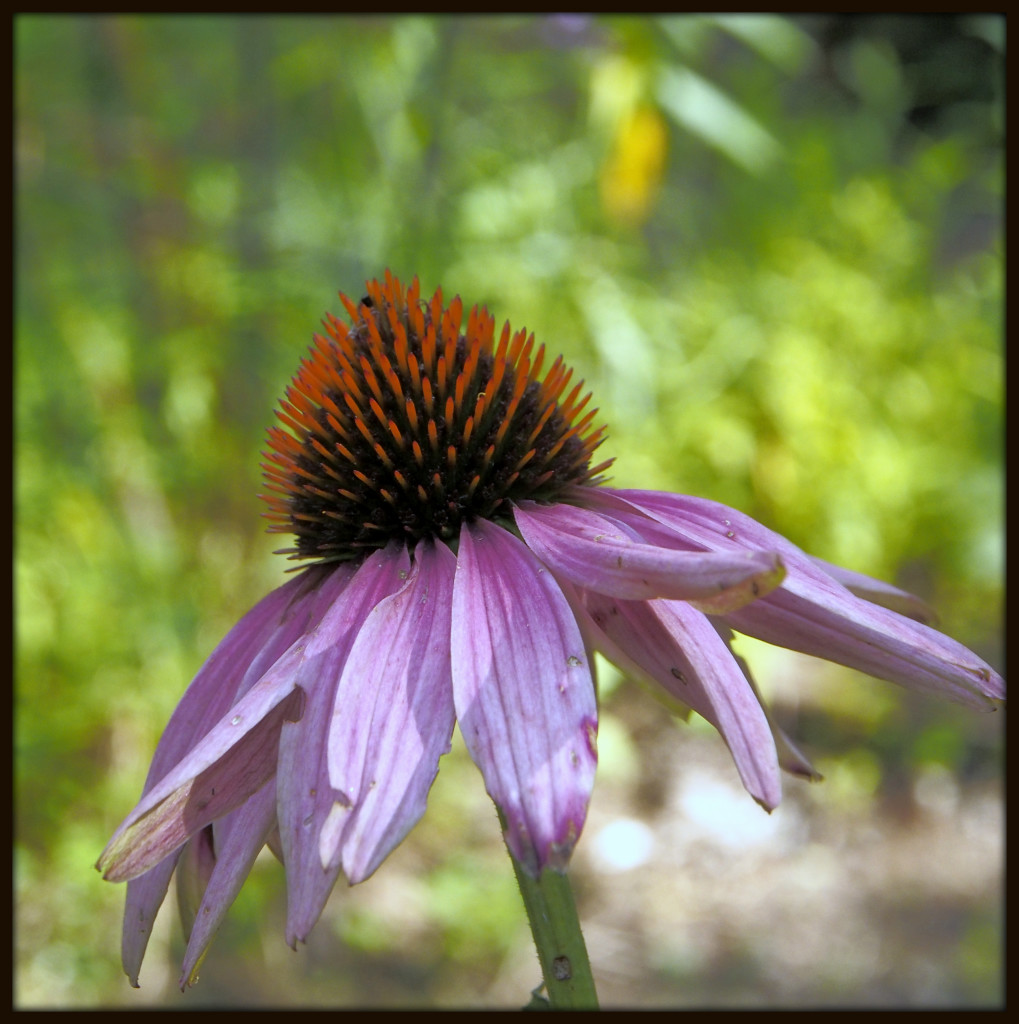
Bees were everywhere, and they were too busy gathering nectar to pay any attention to a photographer in their midst.
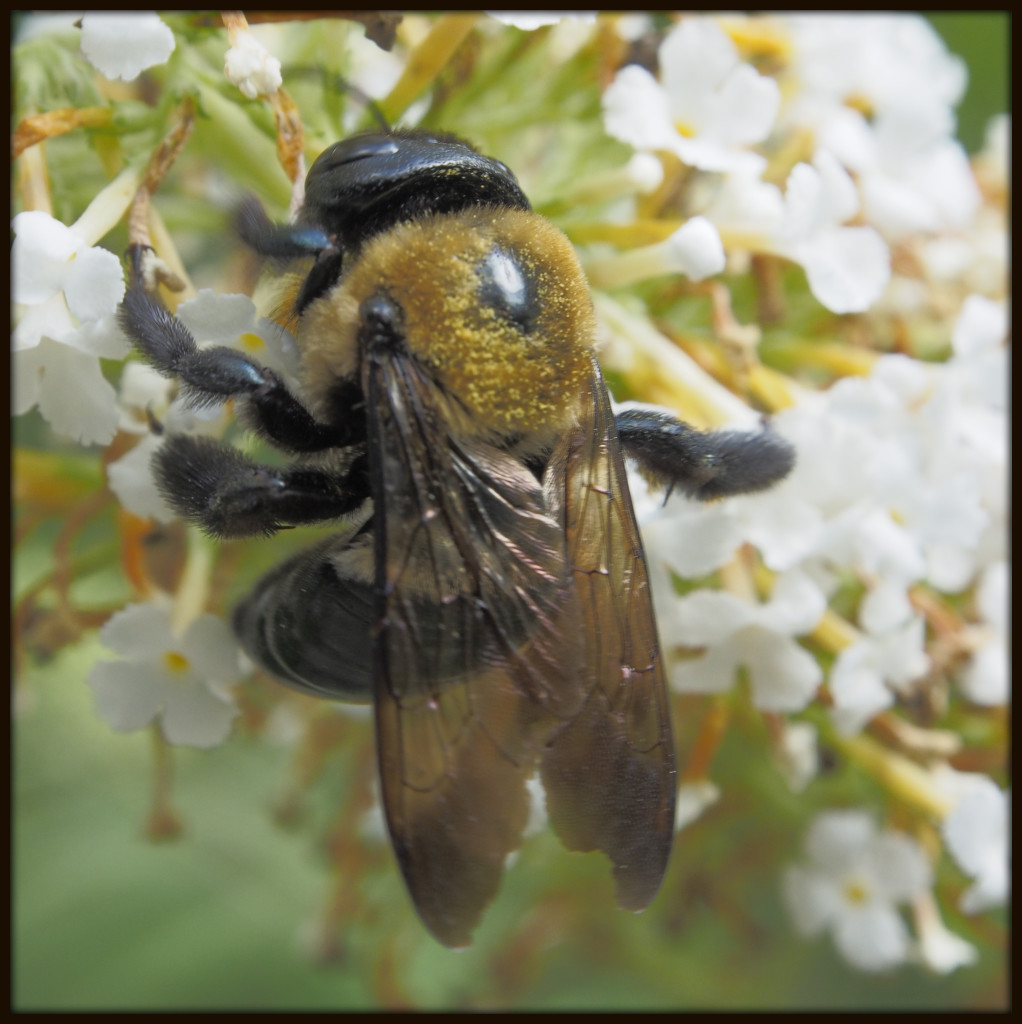
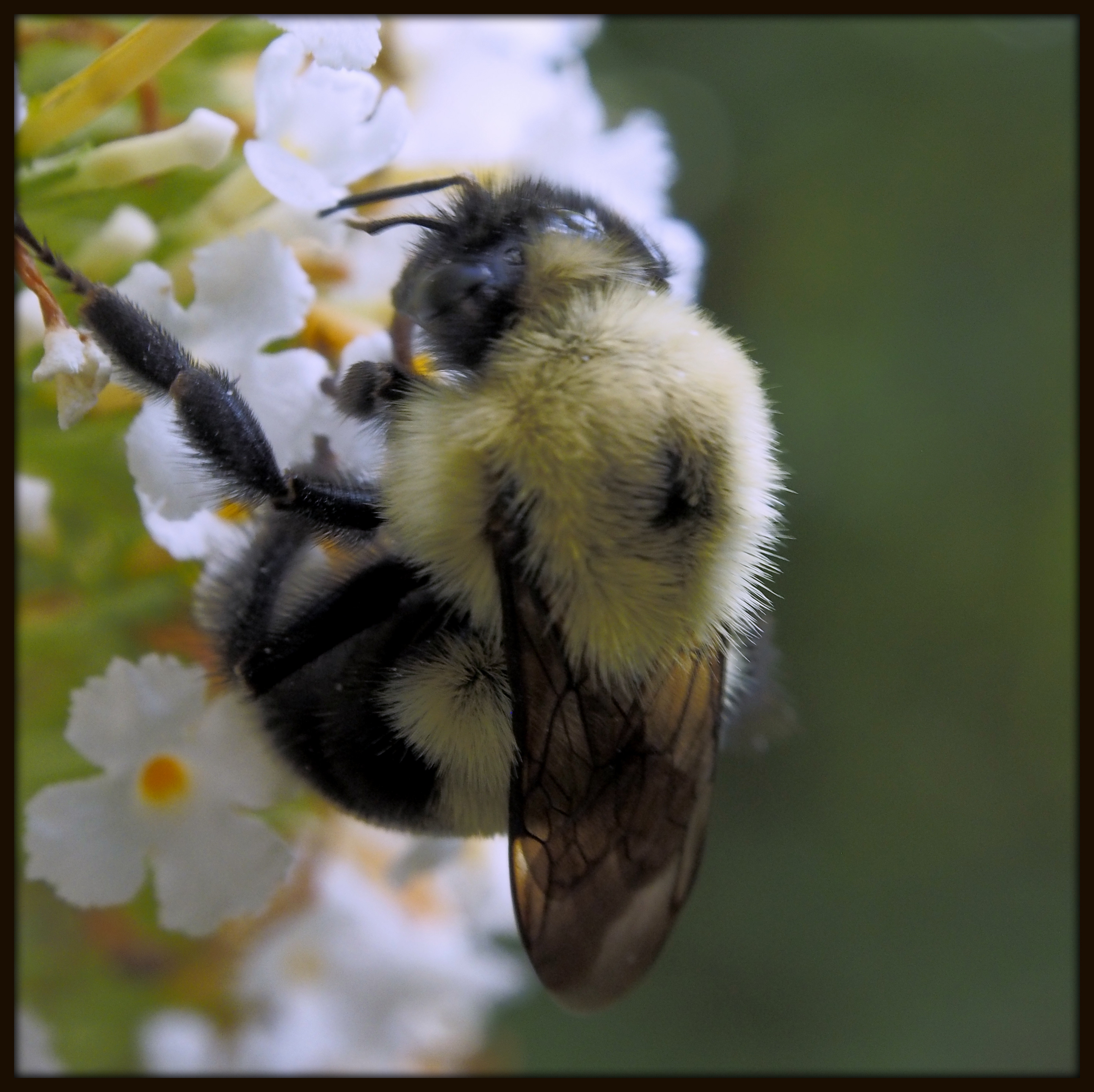
Small butterflies (Microlepidoptera) were in abundance, too. One was the tiny orange Least Skipper (Ancyloxypha numitor), with a wingspan of less than one inch. The Least Skipper may be found throughout the Eastern United States.
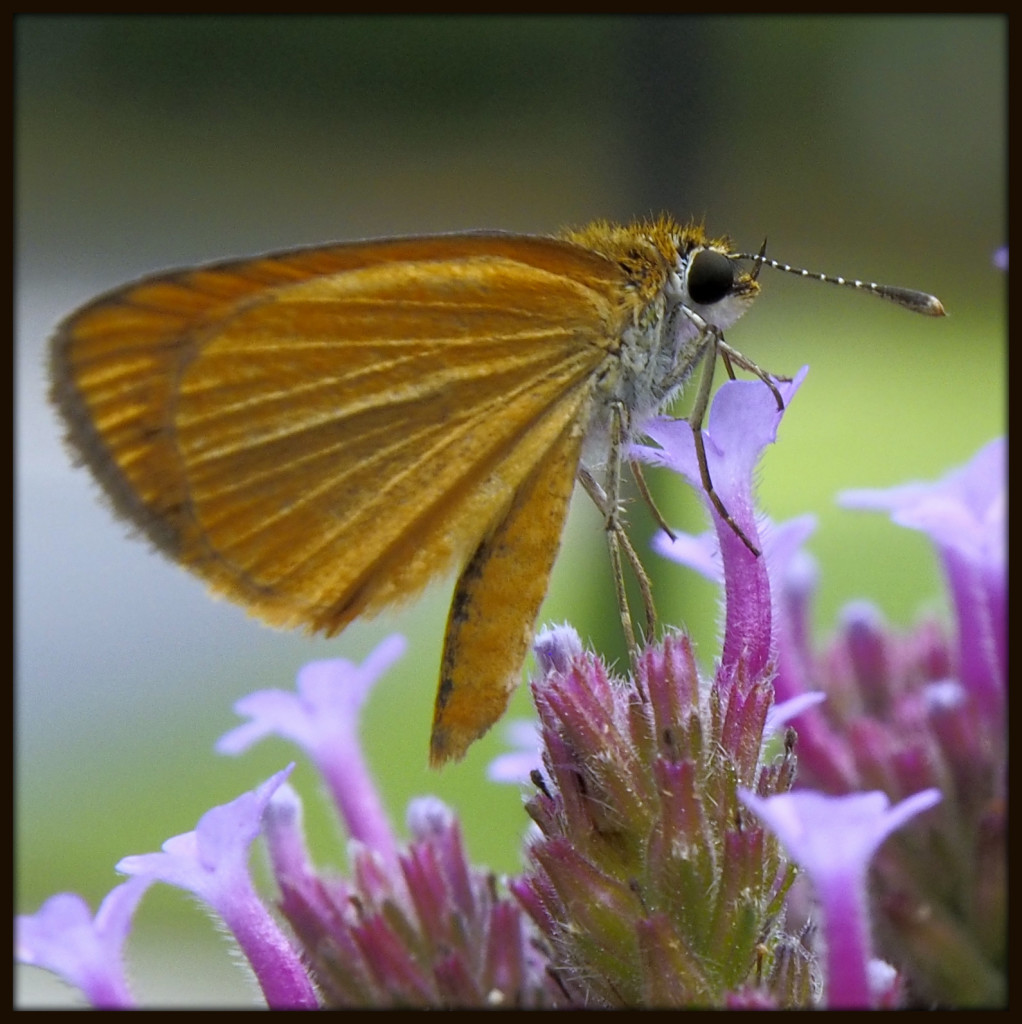
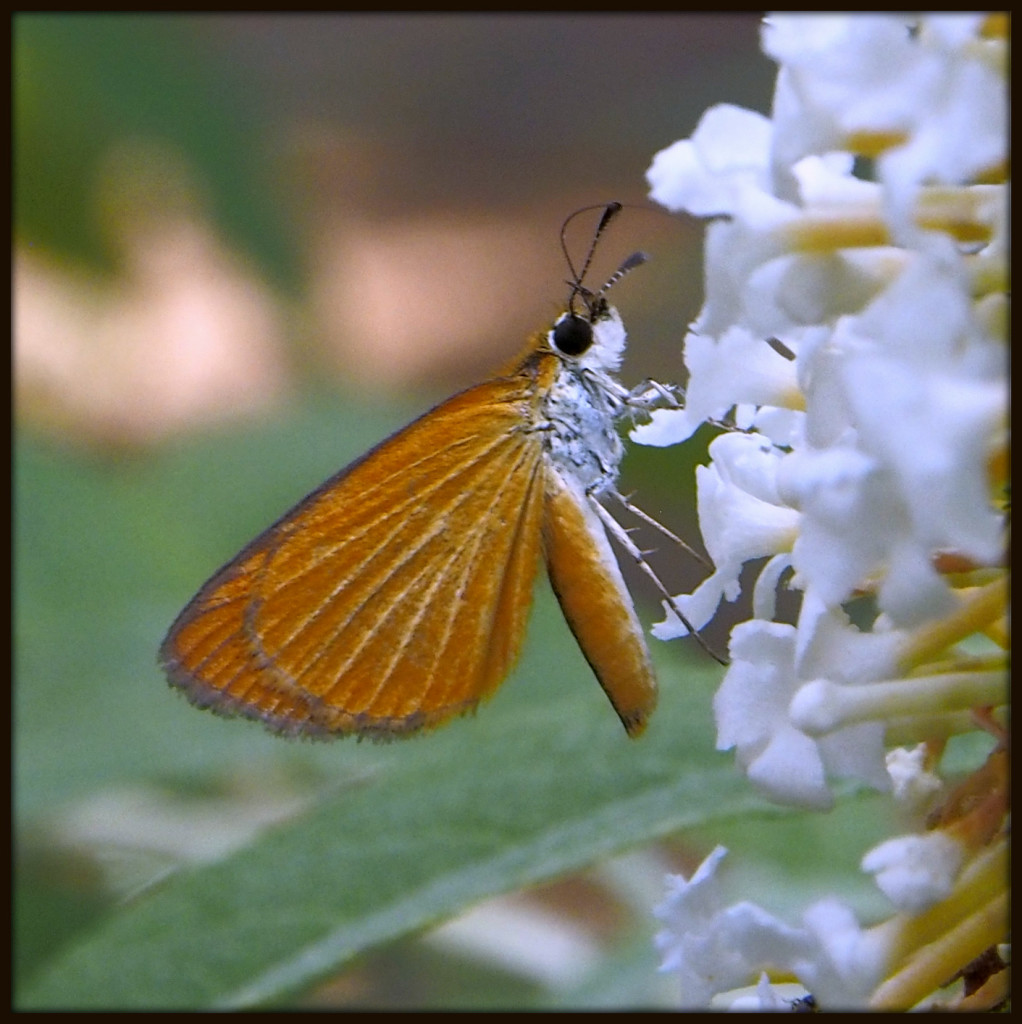
Another, slightly larger butterfly that was frequenting the pollinator garden was the chocolate brown Ocola Skipper (Panoquina ocola). A primarily tropical species common in the Deep South and found occasionally as far north as Pennsylvania, the Ocola Skipper has a one-and-a-half-inch wingspan.
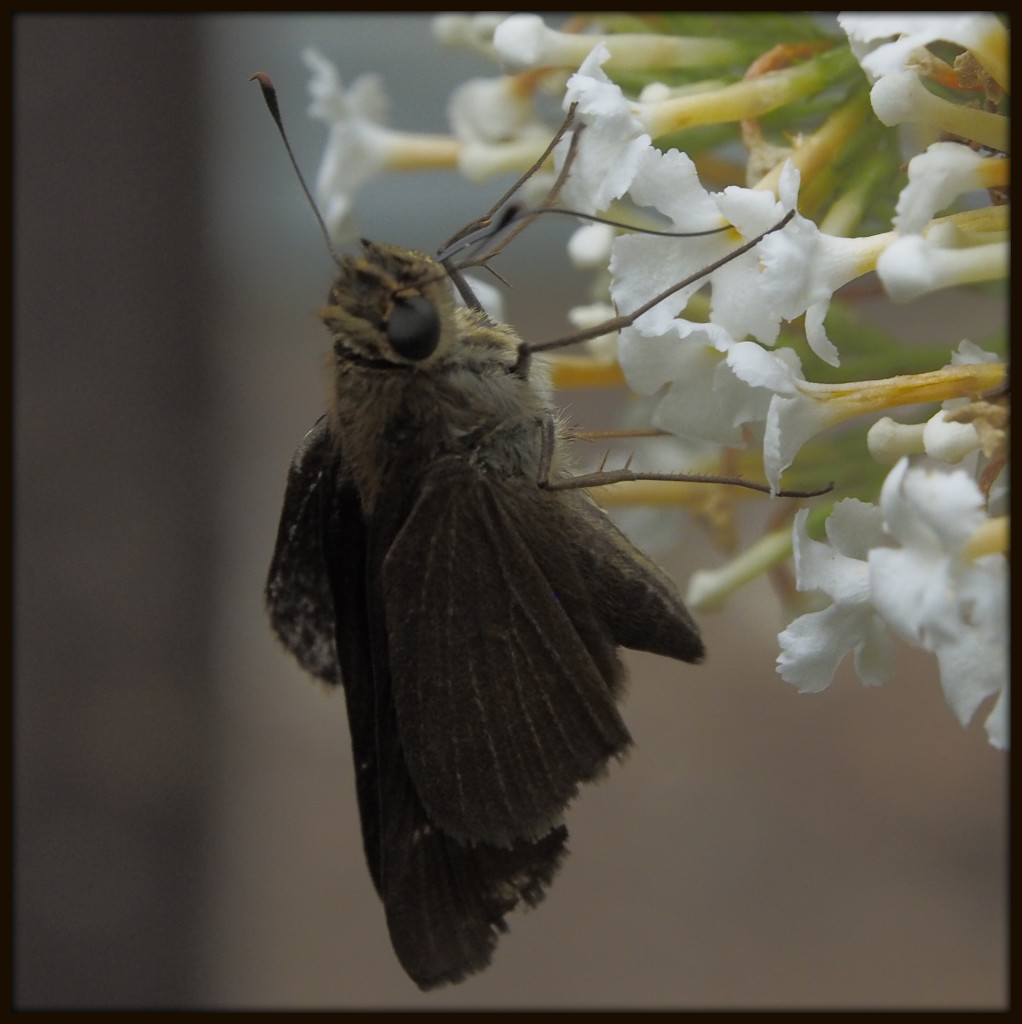
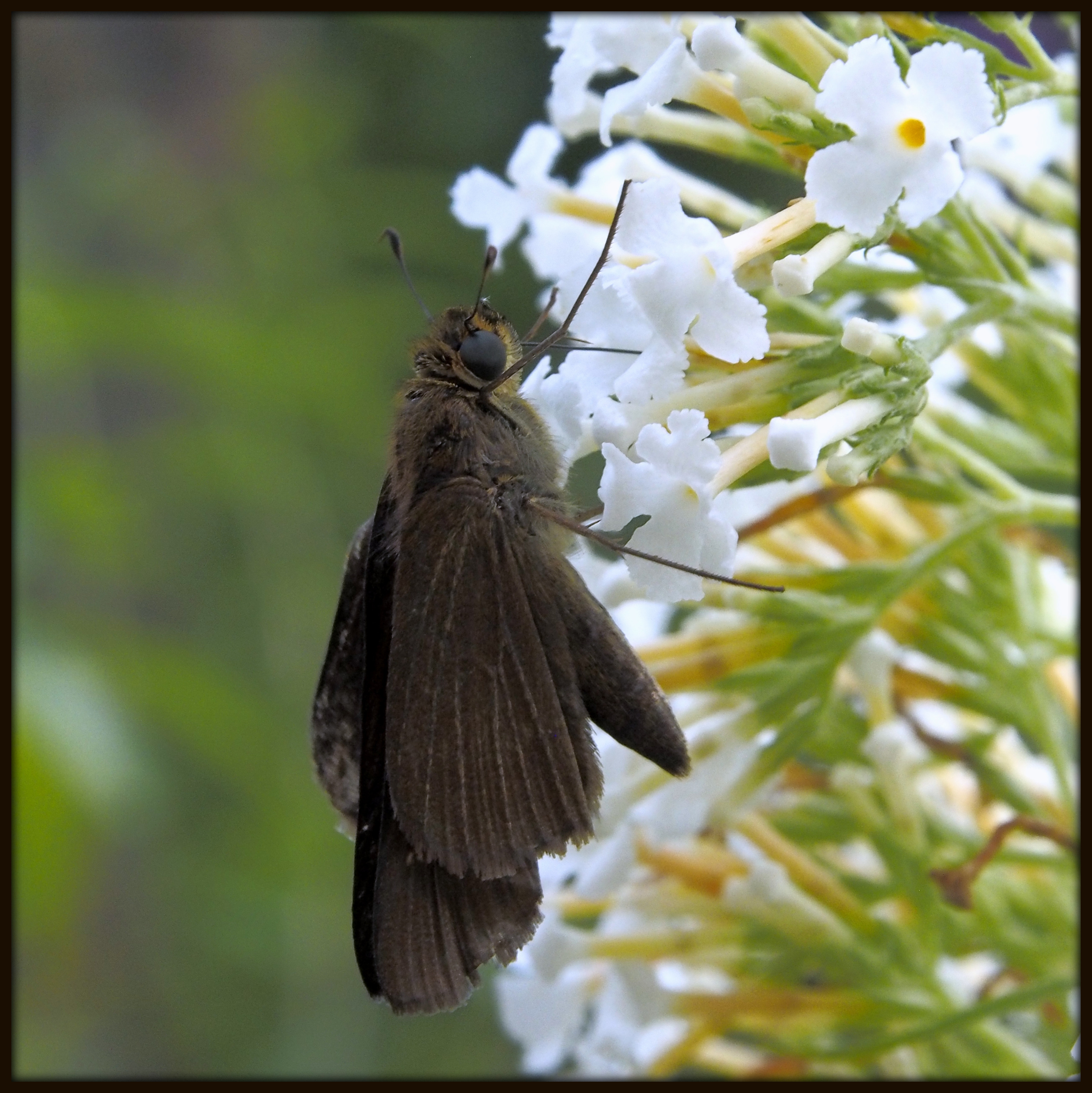
After half an hour entranced by the pollinators, I set off down the boardwalk trail and into the wetlands and adjacent woods.
